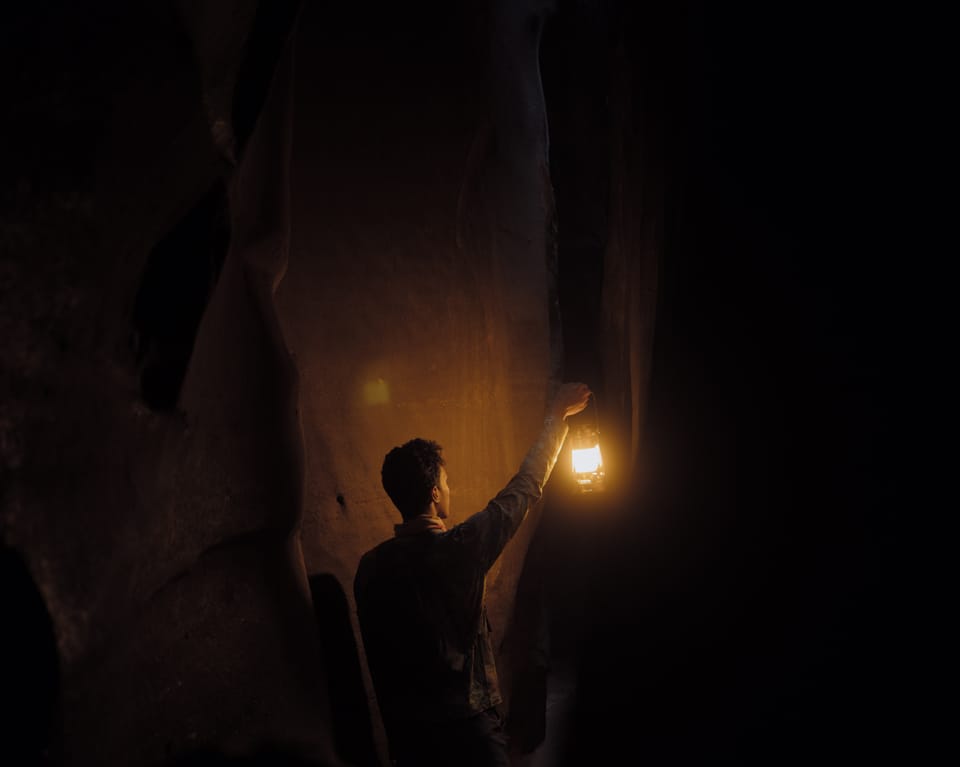How to Get Wealthy (Not Rich)

Ever since I was a kid, it was clear that college was my destination. The reasoning from my parents was strong: you want to live a stable life where you can be happy and pursue your dreams. After college would be a job at a big company that pays well. It’s a simple formula. I’ll call it the stable formula — follow these steps and you’ll have a stable life.
The narrative unraveled when I showed up at college but the initial doubts crept into my mind during my teenage years. I always had loved learning and had sought any way to do so. In high school, I entered a Neuroscience competition, took online courses in data analysis and python, and read non-fiction voraciously.
So, when I finished my first quarter in college, I couldn’t ignore the message: anything I can learn here, I can learn online.
In retrospect, anything is exaggerated. If you want to be on the cutting edge of research, you have to spend time with the people doing that research. That information is far from democratized.
But basic skills like calculus and coding? It’s all online. This isn’t a critique of college (I’ve done that before), but it is a critique of the stable mentality. There’s a more pernicious problem with this mentality other than the fact that it relies on a system that doesn’t fit everyone (i.e., college). The problem is that along the path to stability, you create no ownership.
How to get Wealthy
Venture capitalist Naval Ravikant makes it clear that renting out your time is not wealth. It’s a continuous exchange of your time for money. Wealth is “assets that earn while you sleep.”
At its simplest level, we can view this as investing in the stock market. Those are assets that earn while you sleep. But this isn’t about buying stocks. This is about ownership.
Ownership creates wealth.
Ownership
Ownership is simple, but I think an example will help you apply this mental model to your decision making.
We can best understand what ownership is by understanding what it is not. Working at a company and creating something for them is not ownership. That’s renting your time.
Ownership, as the word would suggest, is having complete control and responsibility for what you create. When you make something, you reap the rewards or the costs. It’s you.
Some ownership decisions have fairly low costs. Writing this Medium piece for example. The costs are my time for writing it and the possibility that my argument is so distant from reality that my reputation declines. Having published almost 150 pieces, I think I’m safe when it comes to the latter.
The benefits? Well there’s a lot of ways to break that down. There’s the benefit of helping others. There’s the benefit of earning money. There’s the benefit of being able to look back at my thoughts to provide clarity for my decisions.
The key, however, is that the benefits are reaped for the rest of my life. I write once and reap the benefits forever. That’s ownership.
Pursuing the stable path, you’ll get a lot of paychecks. A paycheck is someone paying for what you own. They’re taking it off your hands. But can we really rely on it?
Beholden to Someone Else
Relying on a system in which you exchange your work for a one-time-cost is dangerous. It cuts down on your exit strategies. It makes you reliant on a system that you may eventually disagree with. Purposeful living arises from ownership.
Purposeful Living
In living purposefully — acting on your intentions and values — we need autonomy. We need the choice to act in the way that we want. Where does autonomy arise from? It comes from ownership. It comes from having something to rely on that doesn’t mean you have to act in a certain way to guarantee its fruits.
In college, the idea of “selling out” (i.e., selling your soul for money) is looked down upon but is nonetheless incredibly common. Why does this happen? Without ownership, you have to rely on those who have ownership (often whose decisions you don’t agree with).
Ownership is a path to purposeful living.
How do I create ownership?
Create and share. This is how all great things begin. You create on your own and then share it with the world.
A little over a year ago today, I was publishing on my Medium with very little growth. All of a sudden, my audience exploded. People were reading my stuff! That’s ownership.
Ownership is vulnerable. There is nothing more revealing than taking responsibility for something. When I publish something, I’m putting my name on the line. I’m putting my hopes, dreams, beliefs, and values on the line. It’s scary.
Ownership is created through vulnerability. It can look like founding a startup, writing a blog post, or learning a new skill. This is ownership — qualities and possessions that are impossible to dissociate from you.
The image of a dude coding in his basement and then being the richest person ever is a scene that makes a lot of sense to me as a member of Generation Z, but I don’t think my parents quite grasp it.
I think in modern world, it’s an essential image to keep in your mind — namely, that ownership doesn’t need to begin in extravagant circumstances.
Getting to a place where you have ownership takes a lot of privilege, but that doesn’t necessarily mean you don’t work towards creating it.
It’s in the small actions. For me today, that looked like coding a new project and writing this blog post. It’s small, but it’s enough.
If there’s anything I’ve learned in writing consistently for the past year, it’s that the habits you do every day define your reality — start small, stay consistent, and watch as you create ownership.